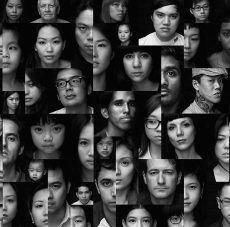Lie: To avoid rejection I must pretend or perform an admired role.
Truth: To avoid worrying about rejection, I must enter the ‘secret place.’
We’ve all felt it. I’m talking about that anxious feeling we get at a social event, when we can’t find one familiar face. Some panic, others wade into the crowd with relish. But for both, often the solution is to put on a smile and fake it. That is, we pretend, we put on a role, a persona, perhaps the best version of ourselves or, for some, we assume a completely different personality; others are less subtle – they clam up or hide or avoid the conflict altogether.
The question is ‘why?’ Why do we do this? Why can’t we simply without pretense or bother, strike up conversations with a simple sincerity, taking a genuine interest in the life and well being of those we meet? Why is that so hard? The answer is obvious: . . .









